Frédéric Genta (born March 28, 1981) is a Monégasque government official. He graduated from ESCP Europe and holds a MBA from Harvard Business School. He worked at Orange (France’s main Telco), Amazon and Google in senior positions, both in Europe and the US.
In March 2018, Prince Albert II of Monaco appointed him as the Country Chief Digital Officer in charge of the full digital ambition for Monaco. His scope covers infrastructures (telecoms, satellites…), full transformation of the public sector (administration, health, education…), building a smart-city and the digital transformation of the Monegasque economy Monaco economy via digital.
In addition to his government functions, Frédéric Genta is a board member for different companies and NGOs. He also lectures in Strategy at ESCP Europe.
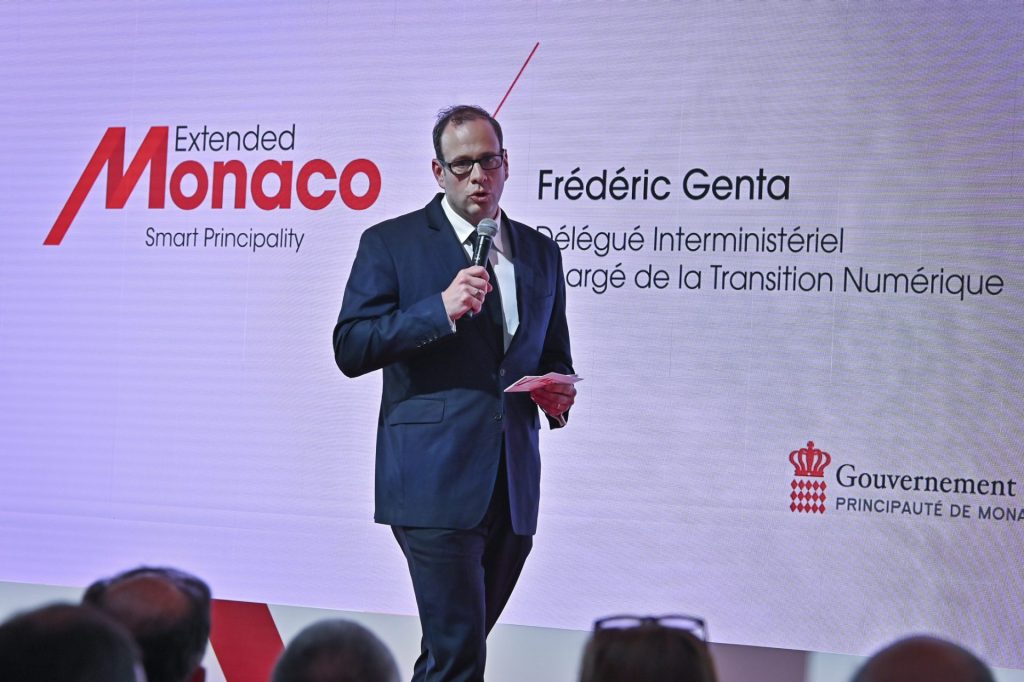
We hear from Mr. Genta on the ambitions of the “Extended Monaco” project and how it will benefit the Principality, especially in face of the Covid-19 pandemic.
Digital transformation has played a major role in Monaco’s response to the Covid-19 Crisis, how has this tool performed particularly well?
Indeed, digital technology has been an essential tool for the continuity of the State, the public services and the economy in general. In the government, we have gone from a teleworking population of 30 to 1,200 which represents most of the office working personnel. We had been working on videoconferencing equipment and training our 4,000 civil servants for the past two years and all the efforts we had made to prepare for teleworking took on their full meaning during the Covid-19 pandemic.
In the health sector, about 40% of medical doctors in the Principality have been able to fully continue providing care via teleconsultation. 15,000 teleconsultations were made possible during the lockdown!
In the education sector, lessons, homework, the parent-teacher relationship, the student-teacher relationship… were safeguarded and even optimized via the ‘Teams’ platforms that we installed in 2019. These platforms garnered 80% of favorable opinions from the public and professionals alike.
Digital technology has also made it possible to distribute unemployment benefits but also aid to businesses, all fully applied for and processed digitally. The required legal reform passed on a Thursday evening, and the following Monday we suddenly had the capacity to process 500 times more requests than before, without recruiting new people, and in a completely paperless manner!
But it also showed us what could be improved: for example, it showed the lack of Monegasque e-commerce platforms, especially for restaurants.
In short, digital technology in times of crisis allows real resilience for continuity. It offered us solutions but also allowed us to realize that we had to improve further.
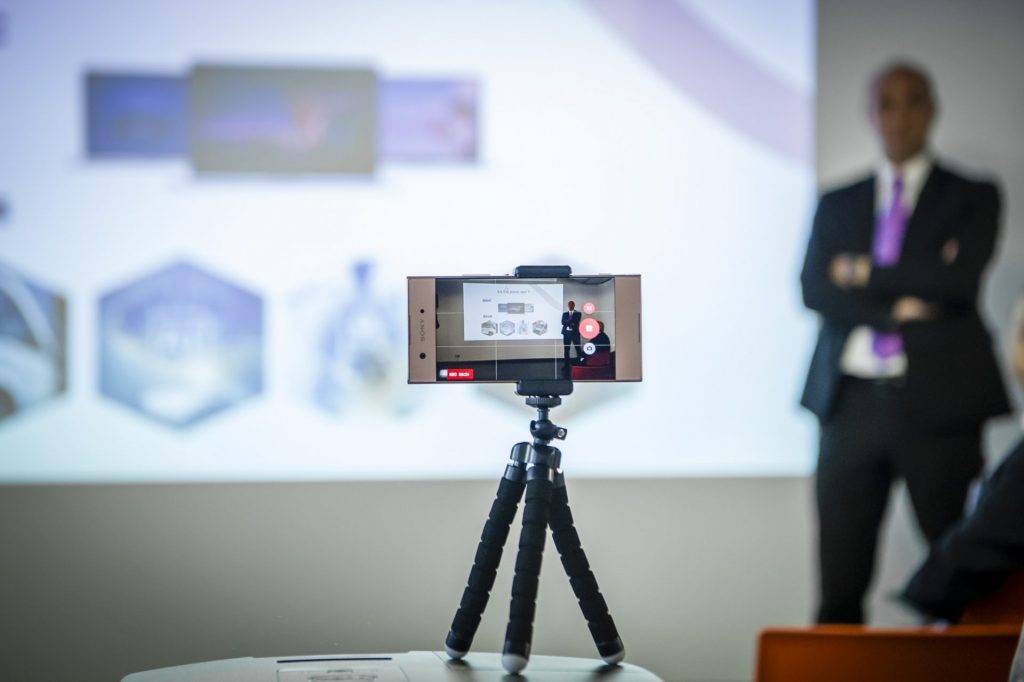
What did we learn from this experience and would we do differently if a similar crisis arises in the future?
Well, we always have to do better. However, the pandemic caused extremely brutal effects: overnight, all state officials and civil servants had to work differently. We have identified two crucial aspects to build upon in the future.
The first is the infrastructures, which require time but which, more than ever, strike as indispensable. I am thinking, for example, of equipping students and also of a fiber plan, because today we lack network power. And when the terminals are ready, we should be able to take full advantage of the 5G which Monaco was the first country in Europe to implement. We are working hard on these topics.
The second aspect which came to light during this crisis, is that of the work ecosystems. For example, we realized how a health platform – that would allow for online appointments, teleconsultations in a uniform manner, or access to data among doctors through secure messaging – would be so practical.
The same goes for the economic environment, particularly for electronic signatures or digital seals. So, with the regulatory part now approved, the private sector will be able to take hold of these solutions. All these ecosystems must progress.
Additionally, we cannot do without better training programs in digital technology and platforms, for professionals and economic players. Indeed, there is a difference between what is available digitally and the command demonstrated by users. The foundations already created are good, but they can be better.
In short, we are going to get down to developing infrastructures, creating better ecosystems and above all ensuring, through training, that the Monegasque population, whether in the public or private sector, have better command over it.
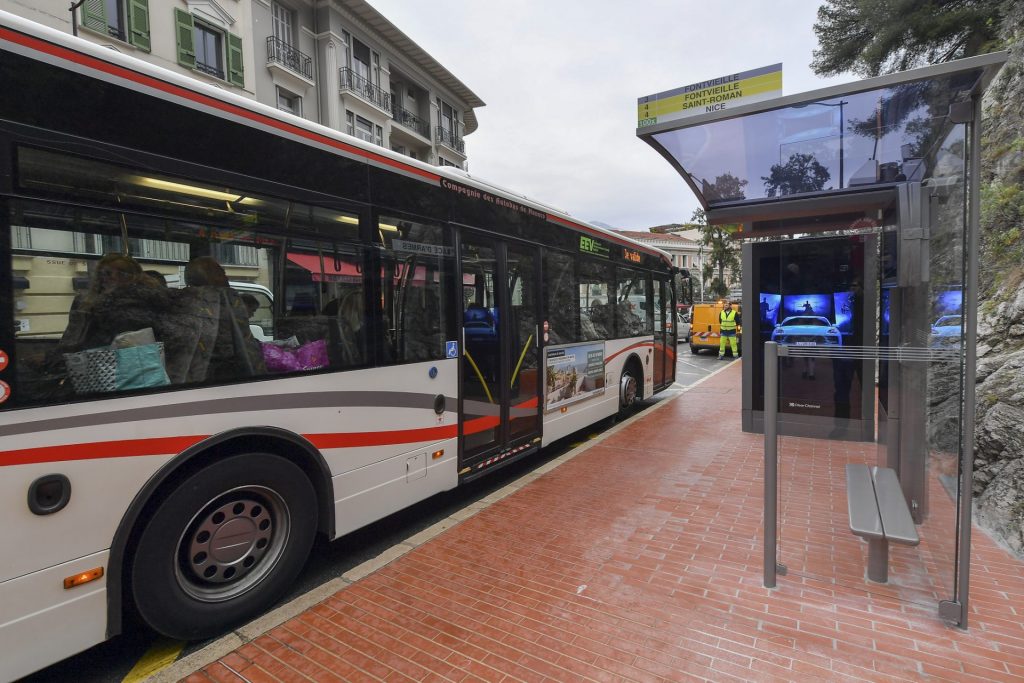
Do you think that the place of digital in public opinion has changed following the Covid-19 pandemic?
Absolutely. The pandemic has accelerated the digital adoption by around 5 years, and all the underlying trends that we had seen emerge previously concerning e-commerce, teleworking, e-education, teleconsultation… are now at a level they would not have reached until 2025.
For the Monegasque economy, this highlights 4 positive and very concrete topics, which really put digitalization at the center of the game.
First, the attractiveness of Monaco: residents, customers, Monegasques, employees, students... have evolved. They are more mature on this subject, and likewise more in demand of digital technologies and services. So the heart of our model must incorporate more and more digital technology to remain competitive and to serve an ever more demanding public. Particularly at a time when neighboring countries have ambitious recovery plans combining ecological and digital transition and will invest huge sums in their digital attractiveness.
The second is the availability and the public’s command over digital platforms: what the pandemic has shown is that Monaco, because of its smallness, has a difficult position when it comes to digital platforms. Nowadays, the real economy is dual: a part that takes place in the digital environment where choices are made and money is spent: Think that 95% of people who book a trip have looked at at least 7 reviews online. It means that if you are not present online, you will only reach one in 20 customers; another part takes place in the physical world where the experience is lived, after being chosen and sometimes paid for, digitally: a hotel, a restaurant…
This is a real issue for our local economy and this is part of what motivated the Prince’s trip to California when we visited Google to understand better how to ensure that we make the best partnerships, how to create scaled Monegasque platforms for e-commerce, for example, how to train merchants and SME owners with these tools so that they can use them.
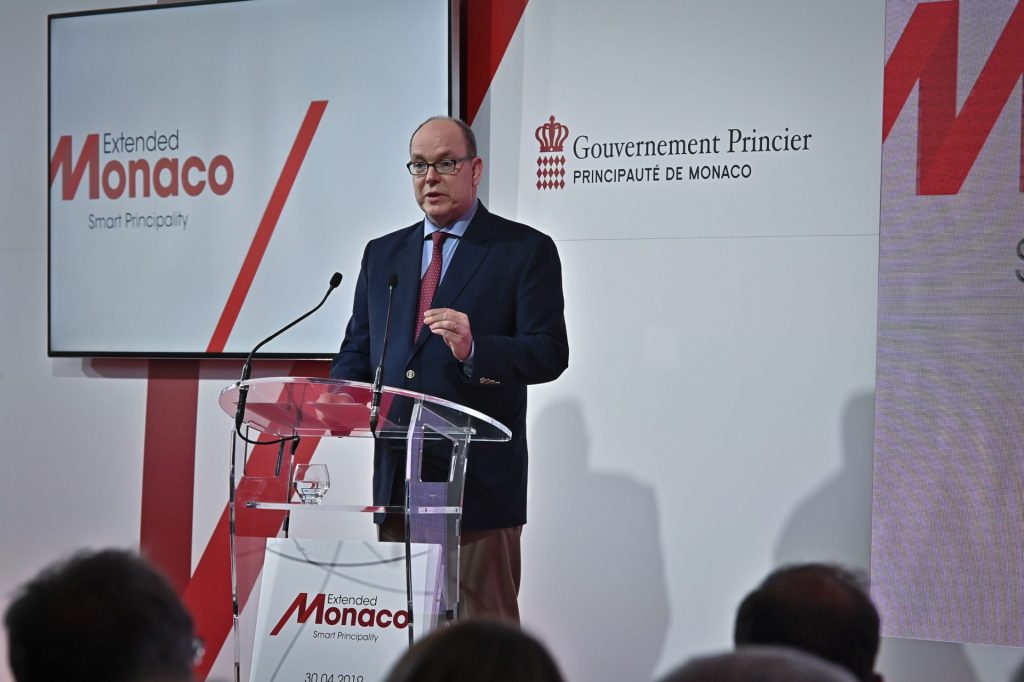
Indeed, the Covid-19 health crisis has shown that Monaco can take more advantage in the digital sphere more than it currently has. It appears that our economy does not yet have sufficient mastery of the digital technologies to derive from them the immense gains in productivity that they offer. It is therefore up to us, the government, in collaboration with private stakeholders, to find the best way to make Monaco a digital economic paradise.
Once you have attracted residents, once you have helped your traditional economy thanks to digitalization, the third topic which comes out is the diversification of our economy.
The National Council recently passed a law on digital tokens which are a means of diversifying our economy and attracting capital in the Principality: ‘progress’ projects, which can be linked to technologies that are positive for the environment, to humanitarian initiatives, to solutions promoting better education, better health… will be selected by the government and could benefit from this funding platform. Based in Monaco, this financing platform is a private platform, which allows these projects to garner the approval of the State, thus guaranteeing their seriousness and integrity, to raise money from private investors, and to offer them returns on their investment. The value of each digital token will determine the yield, the guarantee of income…
In short, we connect supply and demand on a blockchain-based platform, something that was impossible before: unknown entrepreneurs could not get listed in Wall Street, but neither could they be satisfied with limited funding obtained from their circle of friends.
In return for access to this Monegasque financing structure, entrepreneurs are required to move to Monaco. This creates jobs and stimulates corporate real estate for Monaco. The objective of this financing platform is to attract 10 to 12 companies per year and 150 to 200 million EUR from the private sector in the Monegasque economy. There is also a real appetite from the main Monegasque financial institutions to invest, because these progress projects are positive, green projects, but also they relate to the local economy. And all of this helps attract businesses that are different from those already present in Monaco.
Finally, the last topic is to grow the share of the digital economy in Monaco, which today represents 3.5 to 4% of the GDP, with some platforms already employing a lot of collaborators. The Platinum Group is one of them with more than 200 employees.
These are the different axes between our traditional economy and the digital economy.
Jean Castellini, our Princely Government’s Minister of Finance and Economy, deems them very important. In a country that has very little space, but which seeks a lot of added value, the recovery will be accomplished through digital technology, with people who will have de-facto taken the digital turn. We therefore have a strong ambition on this subject.
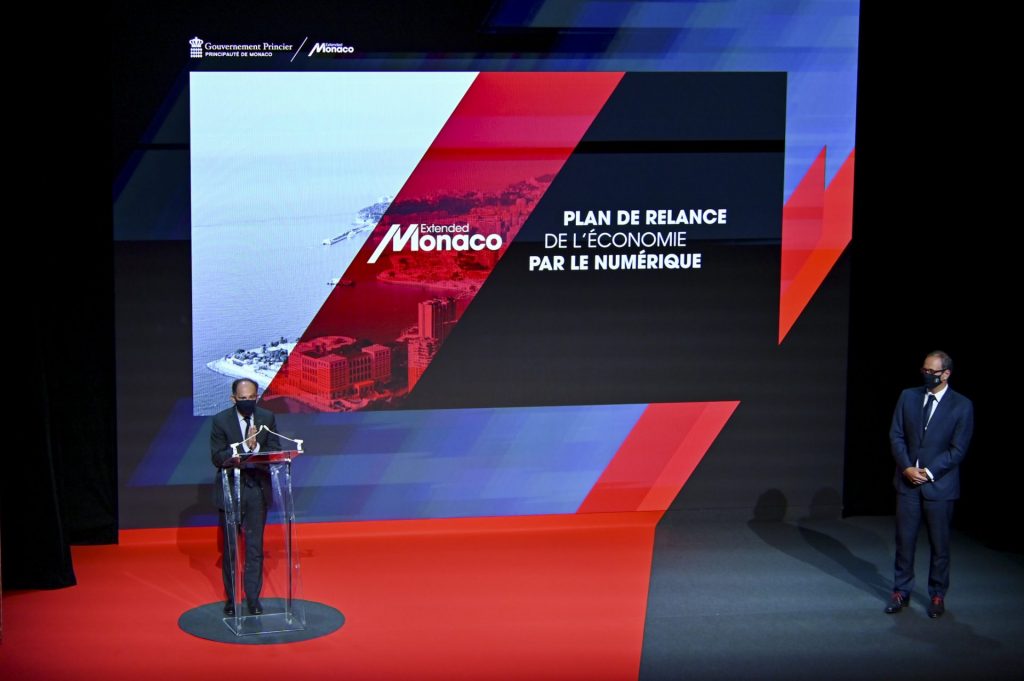
Many countries want to make digital technology the spearhead of their revival. Is this approach relevant for Monaco?
Indeed, it is interesting to note that as part of the economic recovery plans, the only project on which the countries of the European Union have unequivocally agreed is a Cloud project: the Gaia X project launched by France and Germany and whose horizon is 2024-2025. This is part of the current race for digital infrastructures. We also have Cloud ambitions. In collaboration with Monaco Telecom, we have ambitions on fiber technology, e-commerce platforms…
The beauty of a digital platform is that it can generate almost endless business. Because of its size Monaco must therefore absolutely acquire these platforms and I would even say that Monaco would be in danger if it did not equip itself with these infrastructures. Luckily, we have been working relentlessly on these subjects for the last few years and we are a small country, which – in this case – happens to be an advantage as a recent and compelling study by IMD Business School in Switzerland shows. According to this study, in order to succeed in the digital world you have two solutions. Either you call yourself China or the United States, you have the BATX or the GAFA and you can dominate the market. Or you are a country of less than 10 million people!
We are fortunate to be small, agile, to enjoy great political stability, to have made digitalization one of the government’s three priorities, and to have ambition in this regard.
We are therefore going to embark on this race to develop digital infrastructure as the basis of our revival, to be able to create, on these clouds and platforms, profitable and private businesses that will create the jobs and income we need.
Currently, out of the 10 largest companies in the world, between 7 and 8 are digitalized. Thus, digital technology is not the economy of tomorrow, it is the economy of today. And for some, it is already the economy of yesterday.
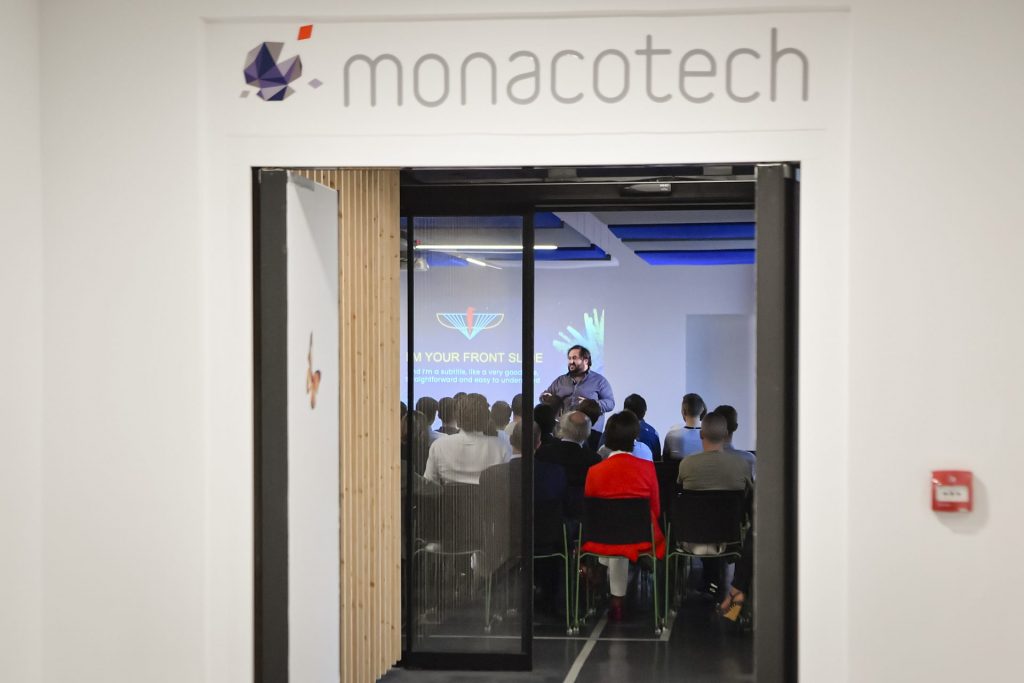
Have you included the energy component in the Principality’s digitaliization project and the Monaco Extended program?
First I have to start this answer with a remark: digitalization is neither good nor bad as such. It is an extremely powerful tool and it is up to each country to decide how it uses this tool which is essential for growth. In the Principality of Monaco, we have chosen to introduce responsible digital technology, based on safety and on the environment. For us, the ecological transition is a framework for digital action. When we engage in a digital project, we take different components under consideration. When the project is economy-related, it is profitability. When it is a service, it is the quality and the customer experience. When it is about security, it can be about privacy (pertaining to data protection), or it can be about the environment.
Together with my colleague Annabelle Jaeger-Seydoux, Director of the Mission for Energy Transition, we always work in collaboration with the competent departments to achieve these objectives.
In our calls for tenders, the environmental dimension is taken into account in our choices. This does not mean that it is the only criterion, however it is an important aspect of our scoring.
As an illustration: during our mission to California, we were told that having a centralized Cloud saves 60% to 70% of the energy compared to having a digital installation in each company. Like for automobiles, the choice of modern technology saves energy.
Finally, there is another aspect, which is digital technology at the service of the environment.
We are currently working on several proposals, in addition to what we have already put in place for education, health, economy, infrastructure and administration, which specifically aim to put the power of digital technology at the service of the ecological transition, the environmental projects spearheaded in its frame, the circular economy…
So yes, the digitalization and environmental topics are linked.
In this regard, I very much appreciated what Laurence Boone, Chief Economist of the OECD (Organisation for Economic Co-operation and Development), said: a head of state today has two priority axes on which to make all strategic decisions: how to succeed in a digital world, and how to make this compatible with the interests of the planet.
We are therefore at the heart of the reading grid for absolutely all subjects in a world that has become digital. A world that we must preserve.
